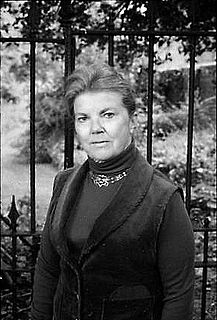A Quote by Clarence Darrow
Some false representations contravene the law; some do not. ... The sensibilities of no two men are the same. Some would refuse to sell property without carefully explaining all about its merits and defects, and putting themselves in the purchasers' place and inquiring if he himself would buy under the circumstances. But such men never would be prosperous merchants.
Related Quotes
Some false representations contravene the law; some do not. The law does not pretend to punish everything that is dishonest. That would seriously interfere with business, and, besides, could not be done. The line between honesty and dishonesty is a narrow, shifting one and usually lets those get by that are the most subtle and already have more than they can use.
If it were true that men could achieve their good by means of turning some men into sacrificial animals, and ... if I were asked to serve the interests of society apart from, above and against my own I would refuse... I would fight in the full confidence of the justice of my battle and of a living being's right to exist.
It would be the death of all creativity for me if I had to sit there and be concerned with the sensibilities of a fourteen-year-old kid. Some fourteen-year-olds would revel in the book, and some would be very sensitive to it, so you can't afford to worry about that. What I worry about is good taste and getting my message across by whatever means I can.
Children who wish to become good and great men or good and noble women, should try to know well all the people whom they meet. Thus they will find that there is no one who has not much of good; and when they see some great folly, or some meanness, or some cowardice, or some fault or weakness in another person, they should examine themselves carefully. Then they will see that, perhaps, they too have some of the same fault in themselves - although perhaps it does not come out in the same way - and then they must try to conquer that fault.
All men who have ideals . . . live by some kind of faith, by committing themselves to some kind of loyalty which is not universally recognized as the common property of all thinking men. They must have something-something outside themselves, to make them feel life is worth living, that good rather than evil is the explanation of the world.
You may think it odd that there were three men to look after one tiny station, but the people who ran the railway knew that if you left two men together in a lonely place they would quarrel, but if you left three men, two of them could always grumble to each other about the third, and then they would be quite happy.
In every serious doctrine of the destiny of men, there is some trace of the doctrine of the equality of men. But the capitalist really depends on some religion of inequality. The capitalist must somehow distinguish himself from human kind; he must be obviously above it or he would be obviously below it.
The civil magistrate cannot function without some ethical guidance, without some standard of good and evil. If that standard is not to be the revealed law of God (which, we must note, was addressed specifically to perennial problems in political morality), then what will it be? In some form or expression it will have to be the law of man (or men) — the standard of self-law or autonomy.
If I were going to construct a God I would furnish him with some ways and qualities and characteristics which the Present One lacks... He would spend some of His eternities in trying to forgive Himself for making man unhappy when He could have made him happy with the same effort and He would spend the rest of them in studying astronomy.



































